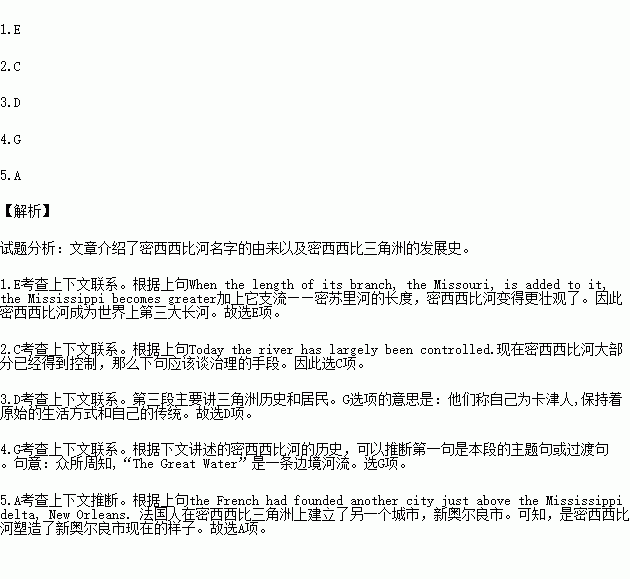题目内容
根据短文内容,从短文后的选项中选出能填入空白处的最佳选项。选项中有两项为多余选项。
If you think about your circle of friends and family members, you can certainly pick out one or more people who are not good listeners. 1. If you’re fortunate, that person is a good friend, a loved one or a teacher.
All too often, we associate the benefits of good listening skills with achieving very specific outcomes, like following the boss’s orders (aimed at getting a job promotion).
2. We think of them as something basic, which we mastered in our formal schooling, along with dictation and obeying instructions, etc. This is a shame. We should know listening skills are the focus of lifetime learning and development, related to our communication skills.
3. All of these occur because two people or groups don’t listen to each other. We don’t analyze the root problem, or work on improvement steps.
We still tend to treat listening skills the way we treat learning to walk: we think that once we’ve acquired them, we’ve got them. We are ready to move on to the next thing. Wrong. 4.
Poor listening skills often damage effective dialogue between people. 5. If we were able to reduce misunderstandings in our conversations by 20-30%, there would be benefits in efficiency and the elimination (消除) of tiresome repetition.
A. However, think about the upside potential.
B. We’re surrounded by this kind of outcome.
C. We tend to undervalue the importance of our listening skills.
D. Think about the number of failures, misunderstandings and arguments.
E. Equally you can think of someone you know who is a very good listener.
F. The challenge of listening is determining when the speaker wants a response or advice.
G. The problem is that people and language are far more complex than the roads we travel on.



 some are with kids with learning disabilities. I have an aid who goes with me to my harder classes, like math and biology. She helps me take notes and gives me tips on how I should study for tests. It really helps, but I also challenge myself to do well. For instance, my goal was to be in a typical English class by 12th grade. That’s exactly what happened this year!
some are with kids with learning disabilities. I have an aid who goes with me to my harder classes, like math and biology. She helps me take notes and gives me tips on how I should study for tests. It really helps, but I also challenge myself to do well. For instance, my goal was to be in a typical English class by 12th grade. That’s exactly what happened this year!